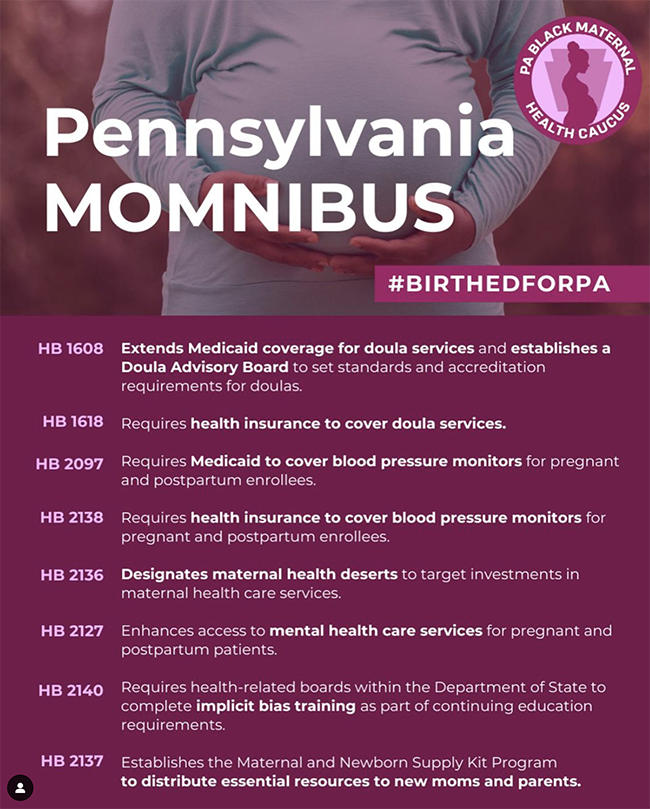On April 3 we hosted a lively conversation about reproductive justice with Senator Amanda Cappelletti, and Representatives La’Tasha Mayes and Danielle Friel Otten.
Rep. Otten spoke about topics in the book “Rage Becomes Her”:
- that we as women and girls are conditioned from early childhood to turn off our fight or flight and end up fawning.
- that this affects how we respond to everything – from violence, the ability to stand up for ourselves in our careers and relationships, and more.
- this shows up in how we frame reproductive rights instead of reproductive justice – what are our rights if we don’t even have access, like so many Black and brown women experience.
She emphasized that this is exactly what Rep. Mayes has been doing throughout her career and in her time in office, and how important it is that we move away from the ideas of women’s rights to reproductive rights framing.
Sen. Cappelletti shared about a time when a Republican colleague outraged her, saying that his fetal remains burial bill (HB-118, An Act providing for the final disposition of fetal remains; and imposing penalties) would help her grieve after she had miscarried – she yelled at him so loudly that other committees could hear her. And rightfully so. These bills have been passed in states like Ohio and Indiana, and the ACLU calls these bills “Dangerously expansive: HB-118 introduces a new definition of “fetal death” to include all medical tissue from the moment of conception—not just fetal tissue, but also embryonic tissue and tissue containing a blastocyst or fertilized ovum, including those that were never implanted.”
And just like HB-118, the war on Mifepristone is about controlling women and bodily autonomy. Sen. Cappelletti also highlighted that if Mifepristone gets banned in PA, rural areas where access to abortion providers is severely limited, will be effectively unattainable, and would feel like an abortion ban.
But we are making strides toward reproductive justice. Take a look at the eight bills introduced under PA’s MOMNIBUS created by co-chairs of the Pennsylvania Black Maternal Health Caucus, Reps. Morgan Cephas, Gina H. Curry, and La’Tasha D. Mayes, caucus members, and community stakeholders. Rep. Mayes introduced two of the eight bills including HB-2137 Maternal and Newborn Supply Kits and HB-2097 Expanding Maternal Blood Pressure Monitoring Coverage.
Sen. Cappelletti and Sen. Maria Collett introduced The Pennsylvania Menstrual Equity Act, SB-906 (referred to Health and Human Services in February), which gives access to free menstrual products, and which is especially supportive to young people, folks with housing insecurities, incarcerated individuals and minorities.
Rep. Otten’s bill HB-799, putting menstrual products in schools for free for girls, was used in Gov Shapiro’s budget address in February.
Represent PA-endorsed Rep. Darisha Parker introduced HB 850, which allows Pennsylvania women to buy expensive period products using their SNAP or WIC benefits, and now sits in the Health and Human Services committee.
Rep. Mayes said she considers the process that legislators follow to work on legislation piece by piece, does not meet or advance intersectional policy objectives, and leads to unjust treatment, effectively othering Black and brown people. Her examples highlighted the disparities in legislative framing. “We see this in education, where a Texas student lost the opportunity to learn at school due to the length of his hair, we see this in environmental justice — where Black women have to use toxic chemicals to conform to Eurocentric hairstyles.”
Take Action:
- Sign up for Black Maternal Health Week events, April 11 – April 17 created by the PA Black Maternal Health Caucus
- Read more about PA’s MOMNIBUS
- Follow the PA Black Maternal Health Caucus on social media: @pablackmaternalhealth
Thanks for joining us and we hope to see you at an upcoming Breakfast Briefing.
-Tiffany Burnette, Operations

